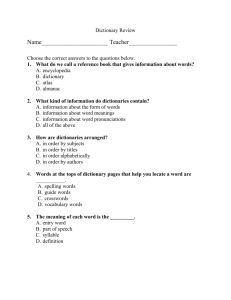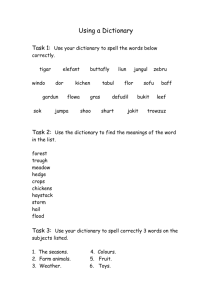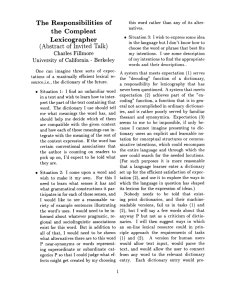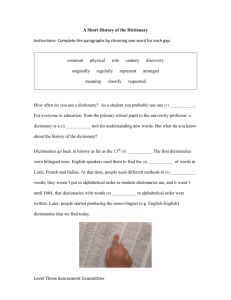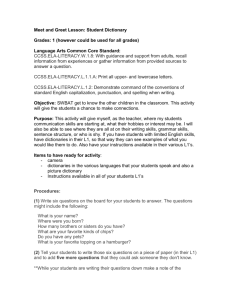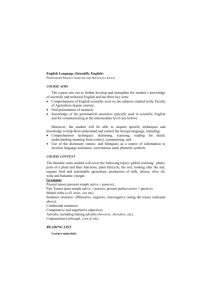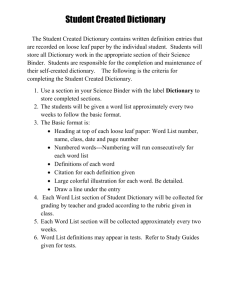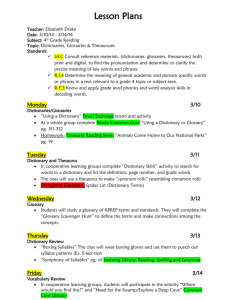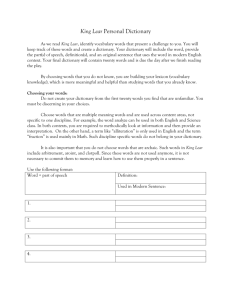View/Open
advertisement
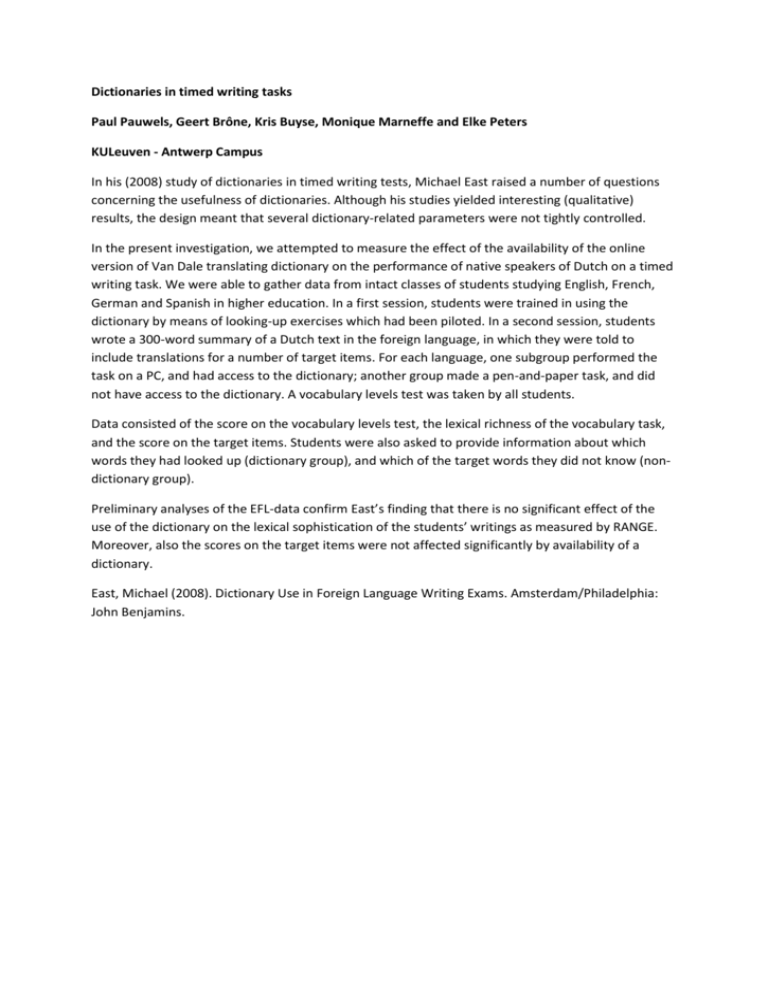
Dictionaries in timed writing tasks Paul Pauwels, Geert Brône, Kris Buyse, Monique Marneffe and Elke Peters KULeuven - Antwerp Campus In his (2008) study of dictionaries in timed writing tests, Michael East raised a number of questions concerning the usefulness of dictionaries. Although his studies yielded interesting (qualitative) results, the design meant that several dictionary-related parameters were not tightly controlled. In the present investigation, we attempted to measure the effect of the availability of the online version of Van Dale translating dictionary on the performance of native speakers of Dutch on a timed writing task. We were able to gather data from intact classes of students studying English, French, German and Spanish in higher education. In a first session, students were trained in using the dictionary by means of looking-up exercises which had been piloted. In a second session, students wrote a 300-word summary of a Dutch text in the foreign language, in which they were told to include translations for a number of target items. For each language, one subgroup performed the task on a PC, and had access to the dictionary; another group made a pen-and-paper task, and did not have access to the dictionary. A vocabulary levels test was taken by all students. Data consisted of the score on the vocabulary levels test, the lexical richness of the vocabulary task, and the score on the target items. Students were also asked to provide information about which words they had looked up (dictionary group), and which of the target words they did not know (nondictionary group). Preliminary analyses of the EFL-data confirm East’s finding that there is no significant effect of the use of the dictionary on the lexical sophistication of the students’ writings as measured by RANGE. Moreover, also the scores on the target items were not affected significantly by availability of a dictionary. East, Michael (2008). Dictionary Use in Foreign Language Writing Exams. Amsterdam/Philadelphia: John Benjamins.

